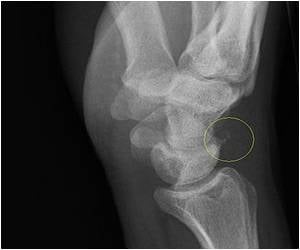
"If we can prevent metastatic disease in osteosarcoma, we will significantly improve survival and quality of life for these patients," says the study's senior investigator, Aykut �ren, M.D., an associate professor of oncology, and of biochemistry and molecular & cellular biology at Georgetown Lombardi Comprehensive Cancer Center.
The molecule they discovered represents the first-in-class ezrin inhibitor, he says. "In addition to its potential clinical application, an ezrin inhibitor will be an extremely valuable tool in the laboratory as we work to better understand how ezrin works."
Ezrin is present in many types of cells in the body including cancer cells. It controls how the cell interacts with its environment, how the cell moves and how it survives in new locations.
In osteosarcoma, the tumor cells that produce high levels of ezrin are more aggressively invasive, �ren says. "Ezrin also helps cancer cells survive when they reach the lungs. If an osteosarcoma cell with no ezrin spreads to the lung, it can't grow there. Having too much ezrin makes it easier for cancer cells to move to the lungs and, once there, it gives these cells a growth advantage."
Osteosarcoma most commonly develops around knee and shoulder joints in children and is "relatively easy to treat the tumor on the limbs, but when the lungs are involved, patients usually die due to pulmonary insufficiency," he says.
Advertisement
�ren and his research team are currently testing several novel compounds in other disease models, including rhabdomyorsarcoma (tumors of the skeletal muscles). They also are making derivatives of several compounds to further increase effectiveness. Some of these new derivatives are also presented the same annual meeting of the AACR today.
Advertisement
Other investigators on this work include Jared T. Murdoch, Sung-Hyeok Hong, Gulay Bulut, George W. Kosturko, Lauren E. Drebing, and Jeffrey A. Toretsky, all of Georgetown Lombardi. The authors also wish to thank Milton Brown and Mikell A. Paige for their contributions.
The study has been funded by a peer reviewed grant support from The Children's Cancer Foundation of Baltimore, Md. and the Department of Defense.
Ien, Bulut, Kosturko, Toretsky, Brown and Paige are named as co- inventors on a patent application that has been filed by Georgetown University related to technology described in this abstract.
Source-Eurekalert













